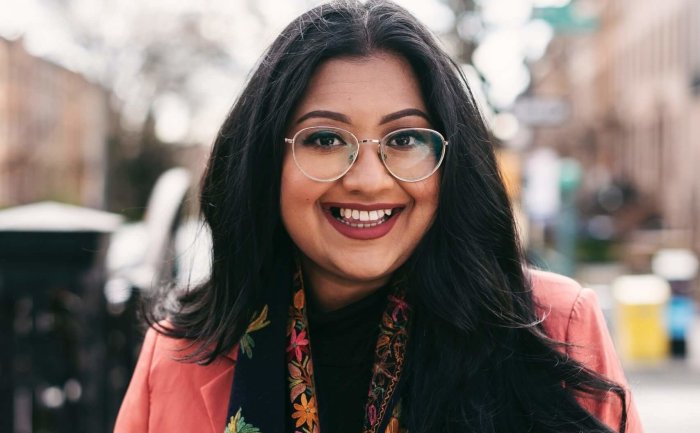Adult literacy education is an essential service. As a teenager diagnosed with Lupus, I navigated a complex and nebulous healthcare system without adequate medical interpreters for my parents, who have limited English proficiency.
To help me negotiate care, my parents needed language justice and access to comprehensive adult literacy which our city currently does not provide. Language justice is the right for New Yorkers to communicate and receive services in their dominant language. From the beginning of my campaign, we have highlighted comprehensive language services as a fundamental city tool — one needed to do successful vaccine distribution and contact tracing, disaster preparedness, and have a city that truly works for all of us.
Adult literacy education is an issue of economic and social justice. In New York City, there are over 2.2 million adults who have limited English proficiency or lack a high school diploma, but funding for adult literacy classes is so scarce that fewer than 4 percent of people in need can access the classes in any given year.
Adult literacy is more than reading and writing — it builds community, enables parents to help with homework, and empowers learners to advocate for themselves and loved ones. The Literacy Assistance Center (LAC) defines literacy as “not just the power to speak the language, read and write the words on a page, and do basic math, but the power to ‘read,’ critically analyze, and transform the world.”
Adult literacy education is fundamental to democracy. Language Justice was the first policy platform I released because a language accessible city is fundamental to a multiracial and participatory democracy. The Literacy Assistance Center Literacy & Justice Initiative is calling for a sixfold increase in adult literacy funding over the next five years. Currently, combined state and city funding amounts to less than $90 million per year, that’s just $40 for each of the 2.2 million adults in need.
Adult literacy education is central to a sanctuary city. Adult literacy must not be limited to improving the workforce, it must be understood holistically as a critical resource to provide full lives for all New Yorkers. It should mean giving all New Yorkers the opportunity to help their kids with homework, teach them their legal rights and how to resist ICE, form tenant unions, and so much more. City Council can create meaningful relationships with community-based organizations and provide sustained funding for adult literacy programs. Through my tenure as the Director of Organizing and Community Engagement for Council Member Brad Lander, I did exactly this. We hosted legal aid and political education workshops in Bangla for free.
This can be the future of City Council services. Every Council member should host and support adult literacy programming for and with their constituents.
In the just recovery I imagine for New York, the City Council and city agencies will leverage their full power to make sure no one is abandoned and left out of fair and equitable care. Radical language justice and adult literacy are key to building and sustaining our political movements and expanding our democracy.
Shahana Hanif is a candidate for the 39th Council District.





















